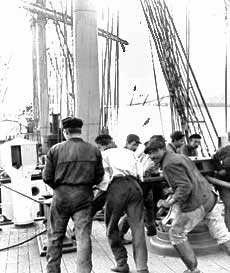Chinese: Not Imperialist...to other countries anyhow.
Tim Lambert
Hobson Response
In school, we are taught what is in the text books. Since the information is in the text books, it must be valid. However, this quarter we have talked a great deal about not being able to believe much about an occurrence unless one had experienced it for themselves. Because no one who is alive now was alive in the 17th and 18th century, the only "concrete" information historians can use are written accounts which, as we have discussed, are written with a certain degree of bias and must be taken with a grain of salt. In the reading, Hobson tries to argue a different point of view than most of us were able to obtain from high school text books. The idea that history is "Eurocentric" (meaning centered around Europe) is one that most people subconciously agree with because it is the way history is written and intepreted. Hobson discusses ideas that make China and Asia in general the center of some of the most important historical subjects, such as trade, iron and steel, and sailing. The fact that China had some of the most key pieces of technology in the 12th centrury as the British had in the 19th centrury and did not impact the world in such an imperialistic way is telling of the differences between the two societies.Hobson starts his argument by addressing some of the discrepencies between the Eurocentric history and his idea of what the case actually was. Essentially, the things we are taught about the Chinese is that they invented gun powder but did not have the capacity to use it as a weapon and that they had small ships called junks that were not as advanced as the ships of Europe. In a conversation Marco Polo had with a Chinese person about gun powder, Polo "suggests that 'This might be a valuable weapon in war', to which the Chinese reply comes, 'No, that would be too horrible, too deadly'"(59). This says a lot about the different mindsets the two cultures had. While the European was eager to apply gunpowder in war in order to win, the Chinese believed it was used better as a way to light up the sky.
Hobson discusses many technological innovations discovered by the Chinese such as iron, "the first cast-iron object dating from 513 BCE"(51), the use of coke for smelting steel in the 11th century (53), and and boats as large as 3000 tons(58). If Chinese had so many incredible innovations, why did they not imperialize the world as the British would do 600 years in the future? "It was because they chose to forgo imperialism, largely as a result of their particular identity.
I'm going to add more later but these are the first two paragraphs. Tell me what you think, thanks guys.
Also: I don't know why some of it is bold, but disregard it while reading

